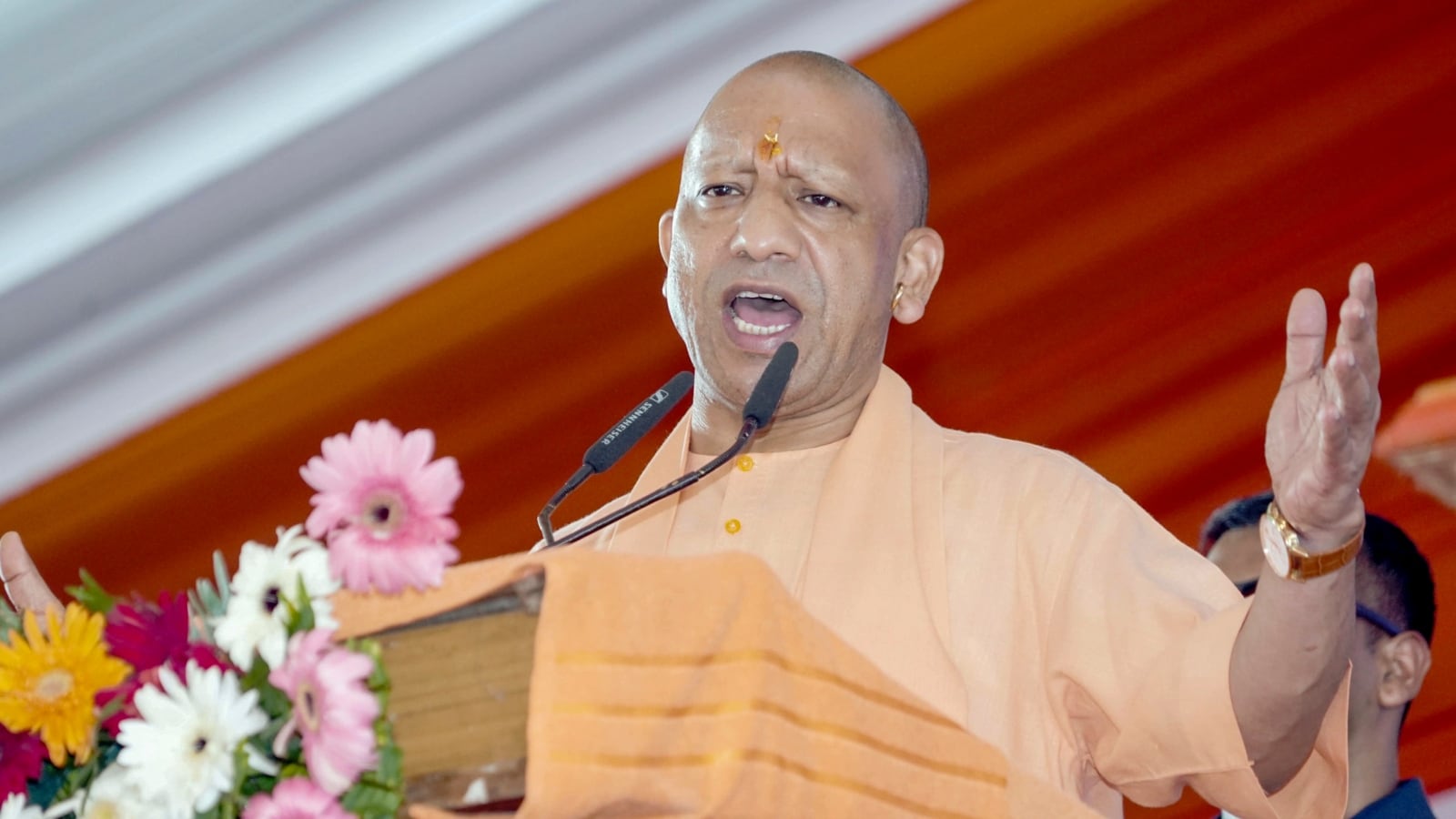Copyright news18

Uttar Pradesh Chief Minister Yogi Adityanath has drawn attention to a deeply important subject — one intertwined with both India’s history and future — yet long suppressed from serious public discussion. Despite some of our greatest thinkers having emphasised its importance, it has largely remained ignored. That subject is political Islam — that is, politics according to Islam. Its claims, actions, and outcomes have been consistent across the world. India has long been its most significant theatre, not only through the past thousand years of history but even today. This is what Yogi Adityanath has sought to highlight. Speaking in Gorakhpur on October 22, he said, “In the country, the years of British rule are discussed as British colonial rule. But political Islam is never discussed. Yes, our ancestors fought against British colonialism. But our ancestors also fought great battles against political Islam. We remember Chhatrapati Shivaji, Guru Gobind Singh, Maharana Pratap, Maharana Sanga for precisely this reason. That is why we honour them as national heroes. But political Islam is the same even today, working with the intention of tearing the motherland into pieces.” Indeed, political Islam has already divided India once before. The fundamental reason for the Partition of India was the demand rooted in political Islam. Muslim League leader Muhammad Ali Jinnah articulated this clearly: “Hindus and Muslims are two different religious philosophies, social customs, and literatures. They neither intermarry nor dine together, and indeed they belong to two different civilisations which are based mainly on conflicting ideas and conceptions. Their outlook on life and of life is different. They have different epics, different heroes, and different episodes. Very often the hero of one is a foe of the other, and likewise, their victories and defeats overlap.” (March 22, 1940) This is not a passing statement but a permanent claim — that Islam cannot coexist with others and must rule over the realm. There is no complaint here, only an insistence grounded in Islamic separatism. Dealing with this requires factual clarity and ideological firmness, which can come only through proper understanding. Unfortunately, Indian leadership has lacked such understanding for over a century. Because of this ignorance, Mahatma Gandhi and the Congress in 1919 supported the Khilafat Movement — unknowingly giving encouragement to Islamic separatism and its mindset of dominance. Thinkers like Sri Aurobindo and leaders such as Annie Besant warned against this, but their counsel went unheeded. The mistake was then covered up, and serious discussion on Islamic politics suppressed to conceal Gandhi and Congress’s blunder. As a result, ignorance persisted — leading to the acceptance of Partition without learning any lessons from the past. This cycle of ignorance, error, and cover-up has continued in India for over a hundred years. Due to this reluctance to study political Islam, it has continuously been given a walkover in India — and within this mistake lies the catastrophe of the last century. Earlier, Nobel laureate VS Naipaul had spoken with similar clarity. In The Writer and India (1976) and India: A Wounded Civilisation (1977), Naipaul questioned the silence over six centuries of Islamic rule in India. He said India was deeply wounded by these invasions — a wound from which the civilisation has not yet recovered. Naipaul noted that no other civilisation has learned so little from its own destruction. Naipaul was not a narrow-minded writer; he was equally sympathetic toward Hindus and Muslims. He simply presented facts about political Islam — just as Yogi has done. Ending ignorance about it is not only necessary but also easy. What Naipaul or Yogi pointed out has also been acknowledged by Islamic leaders themselves, whose declarations and actions have remained consistent over time. Dr Bhimrao Ambedkar too had examined this clearly in his book Pakistan or Partition of India (1940). According to him, political Islam operates with the objective of separation from non-Muslims and dominance over them. Ambedkar wrote: “Muslim politics is necessarily the politics of the mullahs and it recognises only one distinction — the distinction between Hindus and Muslims. Any secular element of life has no place in Muslim politics, and they bow before only one guiding principle of Muslim political groups, which is called religion.” That religion is Islam. Hence, there is no separate text on “political Islam” — its doctrines are embedded in Islam’s fundamental texts themselves. These describe political strategies, diplomacy, and tactics for various situations. Concepts like kafir, jihad, shariat, dhimmi, jizya, and haram can be fully understood only through the Quran and Muhammad’s biography. In the Indian context, Ambedkar referred to this as Gravamim politics, in which “the main strategy is that by making complaints, power is seized.” He observed that through constant complaints and pretence of victimhood, Islamic politics creates pressure that appears weak but is, in fact, a strategy of dominance. Its goal is not equality with Hindus but superiority over them. Therefore, it is essential for non-Muslims to come out of ignorance about political Islam. Islam, by its own definition, is both deen and dawla — religion and state. Its rules aim to enforce its principles upon everyone, including non-Muslims (kafirs). Jihad exists for that purpose. Hence, it is the duty of every non-Muslim — Hindu, Buddhist, Jain, Christian, or others — to understand political Islam. Otherwise, the danger Yogi warns of is real. It has already manifested — in the Partition, and later in the ethnic cleansing of Hindus from Kashmir. It is noteworthy that Islam remains in the global spotlight for its politics. Its religious personalities are often political figures — from Maulana Muhammad Ali, Maulana Shaukat Ali, and Maulana Mohani in India to Ayatollah Khomeini and Mullah Omar abroad. This is not an aberration. As Khomeini said, “All Islam is politics.” He was not wrong. Islam’s conduct toward non-believers — kafirs — is political Islam in practice. The Quran, Hadith, and Muhammad’s life together form its doctrine, much of which concerns directives toward kafirs and jihad. In Muhammad’s biography, more than three-fourths of the content relates to these; in the Quran, about two-thirds; and in the Hadith, about one-third — nearly two thousand hadiths. Yet, kafirs remain unaware of it. That ignorance, however, is political Islam’s greatest strength. Materially or militarily, Islamic societies are not dominant. Yet, through the ignorance of non-Muslims and their lack of ideological clarity, political Islam continues to gain ground — through firmness, deceit, complaints, pressure, and, when useful, violence. This has been accelerating in India for a century, and in Europe for the last fifty years. Therefore, it is not only a right but a duty of non-Muslims, in self-defence, to remove their ignorance about political Islam. Sadly, they are discouraged from doing so — often by their own leaders. This reflects the depth of misunderstanding in India today. Our intellectuals and leaders deny the very existence of political Islam, even as it continues to act with consistency of purpose and terminology across centuries. Thus, the observations of Yogi Adityanath, Naipaul, or Ambedkar are treated as uncomfortable truths — to be ignored or dismissed. Meanwhile, the declarations of Jinnah and other Muslim leaders clearly indicate that they reject permanent coexistence or equality with non-Muslims — which lies at the core of political Islam. Even today, in several Muslim-majority countries, non-Muslims remain second-class citizens, pressured toward conversion. The experiences of Hindus in Pakistan, Bangladesh, and Kashmir illustrate this reality. Had India understood political Islam better, much of the suffering of Hindus could have been avoided — just as knowledge prevents disease. Because the fight against political Islam is primarily ideological and educational, not merely military. Yet, the kafir world avoids such engagement. It is like fighting communism while venerating Marx and Lenin — a contradiction that ensures defeat. Killing figures like Mullah Omar, Baghdadi, or Osama bin Laden will not end jihad, because their faith in the ideology remains untouched. Resistance to jihad can only succeed through understanding political Islam itself. Once that ideological clarity is achieved, resistance becomes both simple and effective. By calling for a serious discussion on political Islam — its history, ideology, and continuing influence — Yogi Adityanath has rendered an important service not only to Hindus and Muslims of India but to all of humanity. The author is a well-known Hindi columnist. Views expressed are personal and do not necessarily reflect News18’s editorial stance.



